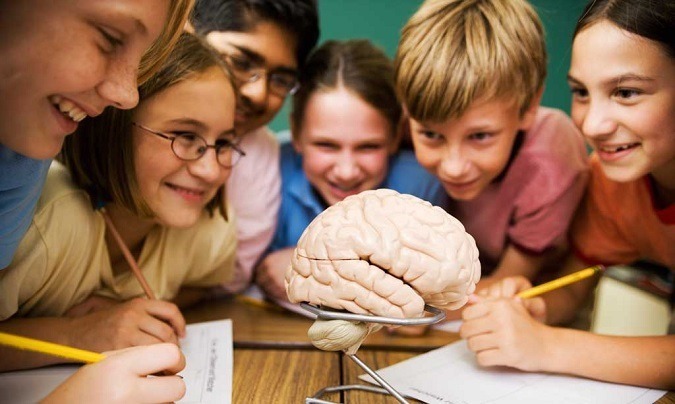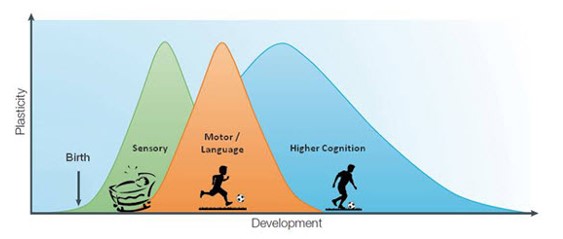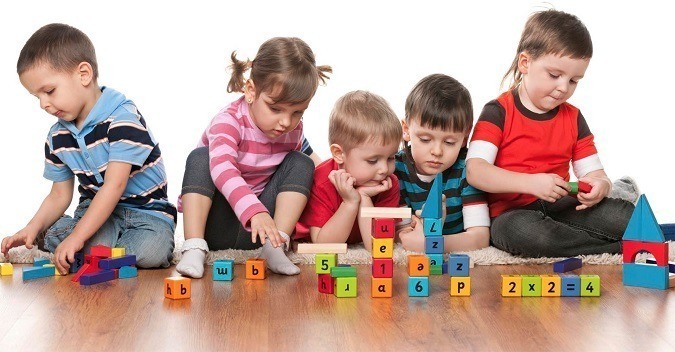Posts Tagged ‘childhood’
Helping young brains fight off anxiety by training and raising cognitive control
Anxiety is one of the most common childhood mental disorders. About 7% of children suffer from it at any given time, with nearly 1 in 3 adolescents experiencing it sometime during their teen years. For an anxious child, seemingly normal activities can be hard. Worried kids have trouble adjusting to school, making friends, and learning. They…
Read MoreKids for life? Pros and cons of lifelong neuroplasticity, as seen via our emotional development
The Brain’s Emotional Development (Dana Foundation’s Cerebrum): “Humans are likely the most emotionally regulated creatures on earth. Compared to other animal species, we can modulate and modify emotional reactions and experiences, even very intense ones, through a large and sophisticated emotion regulation repertoire that includes skills of distraction, reappraisal, language, prediction, social interaction, suppression, and…
Read MoreStudy: Both maternal and parental obesity linked to young children’s neurodevelopmental delays
—– Parental obesity linked to delays in child development, NIH study suggests (NIH press release): “Children of obese parents may be at risk for developmental delays, according to a study by researchers at the National Institutes of Health. The investigators found that children of obese mothers were more likely to fail tests of fine motor…
Read MoreCognitive Development in the first 20 years: A Child’s and Teenager’s Brain
Child’s Brain needs to be nurtured in a proper manner. Here is an interesting book on how to develop children so that they become confident and smart.
Read MoreCognitive Health and Training News
Several recent news (including video of our recent panel discussion): 1) Study Finds Improved Cognitive Health among Older Americans (Journal of the Alzheimer’s Association) — “Societal investment in building and maintaining cognitive reserve through formal education in childhood and continued cognitive stimulation during work and leisure in adulthood may help limit the burden of dementia among…
Read MoreYoga and stress management
Steven Edwards at Wired Blog writes a post titled Yoga Boosts Brain’s GABA Levels, saying that “Participants in the yoga group had a 27% increase in GABA levels, while those in the reading group remained unchanged. Co-authors Chris Streeter from BUSM and Domenic Ciraulo pointed out that this research shows a method of treating low…
Read More


